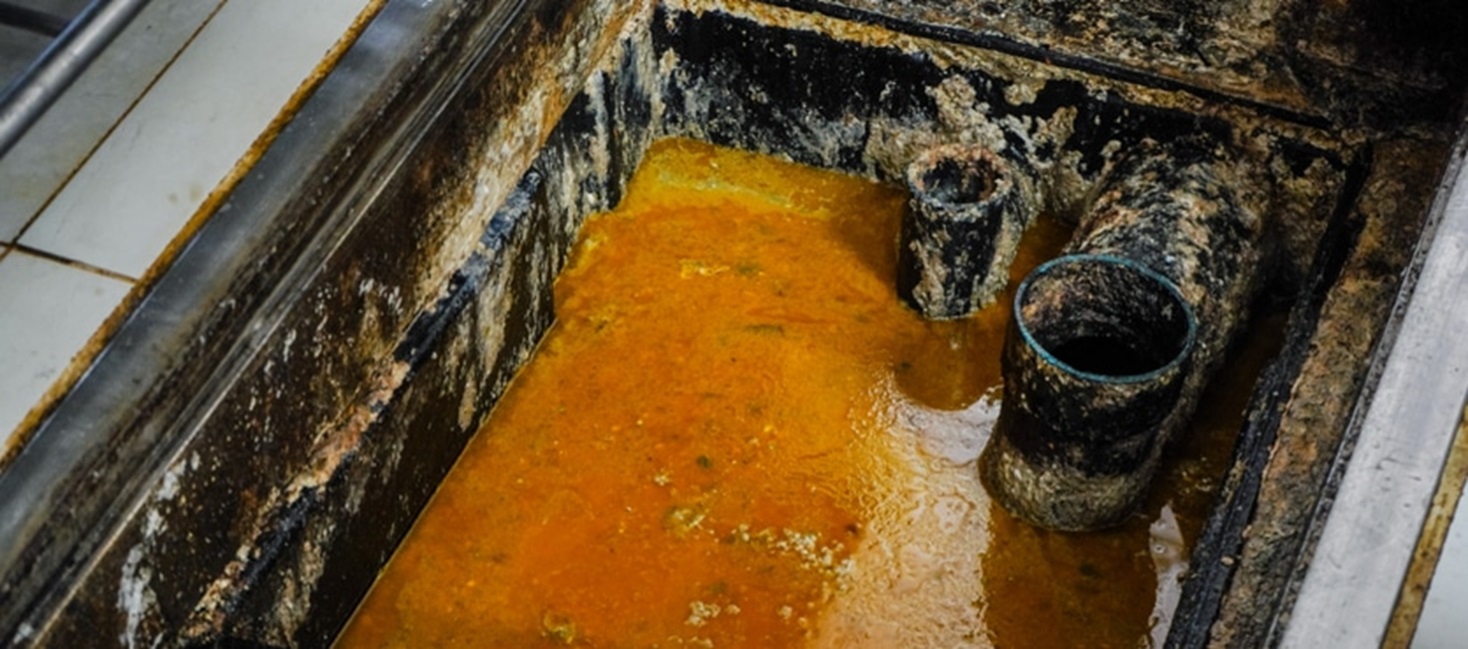Does your commercial kitchen rely on a hardworking grease trap, quietly preventing clogs and chaos? Neglecting proper grease trap maintenance is a recipe for disaster and unexpected expenses.
Giving up on your current grease trap and hastily searching “grease trap installation near me” in a crisis isn’t ideal. A proactive maintenance plan protects both your budget and kitchen operations.
Why Ignoring Grease Traps Spells Trouble
It’s tempting to assume your grease trap operates seamlessly and needs minimal attention. Sadly, this approach invites these nasty consequences:
- Clog Catastrophe: Grease congeals, food scraps accumulate, and other debris adds to the mess. Inevitably, backups cause kitchen shutdowns and expensive repairs.
- Fines and Penalties: Local ordinances regulate grease trap management for a reason! Failure to comply leads to hefty fines or even worse consequences for your business.
- Unpleasant Odors: A neglected grease trap releases foul smells that linger. These offend customers and raise questions about your kitchen’s cleanliness.
- Equipment Damage: Overflows caused by a clogged grease trap can damage appliances and cause flooding – the impact extends beyond just the sink area.
Warning Signs You Can’t Ignore
Think of your grease trap as a silent protector, but remember, it can only handle so much before sending warnings your business can’t afford to overlook. When you notice these red flags, it’s time for immediate professional attention:
Slow Drainage: Sinks That Betray a Troubled Grease Trap
Imagine running a busy kitchen only to have slow or non-existent drainage! Frustration skyrockets, and customers grow impatient.
Sluggishly draining sinks may feel like a mere annoyance, but often this is the first and clear indication your grease trap isn’t up to the task. Congealed fats and food debris create blockages, and if left unchecked can quickly lead to complete standstill.
Unwelcome Aromas: More Than a Nuisance, a Danger Signal
Is that lingering rotten food or rancid odor just something to ‘get used to’ in a commercial kitchen? Absolutely not! Foul, persistent smells point directly to a struggling grease trap.
This means it’s not effectively filtering out fats, solids, and those noxious gases that build up when organic matter decays. This isn’t just unpleasant; it poses a sanitary concern and, if ignored, can trigger violations or create an unwelcoming atmosphere for your customers.
Frequent Backups: A Grease Trap Crisis in the Making
One major kitchen backup is bad enough. But if it happens multiple times within a short span, chaos is inevitable. Recurring backups often point squarely to a root issue with your grease trap.
Don’t just deal with the symptoms; calling in professionals swiftly allows them to diagnose the underlying cause. Failure to do this risks backups spiraling into far more severe consequences, possibly damaging equipment or leading to even worse problems.
Preventative Maintenance Pays Dividends
Regularly scheduled service isn’t a luxury for commercial kitchens; it’s a cornerstone of smooth, hygienic operation. It benefits you in these crucial ways:
- Protects Your Kitchen: A meticulously cleaned grease trap keeps wastewater flowing and disasters at bay, allowing you to focus on making customers happy.
- Regulatory Peace of Mind: Proper maintenance and up-to-date documentation assure compliance with local health codes, shielding you from fines.
- Extended Lifespan: A well-maintained grease trap functions for years longer than neglected ones, delaying costly replacements and disruptions.
Smart and Effective Grease Trap Care: Key Insights
Optimal grease trap management goes beyond routine cleanings. Consider these impactful actions:
- Staff Training: Educating your team on proper disposal practices reduces the amount of food scraps and unnecessary fats entering your system.
- Correct Installation: Different kitchens require different sizes and styles of grease traps. A reputable local installer with grease trap installation experience ensures the right fit for your needs.
- Dosing Systems: High-volume kitchens sometimes benefit from automated dosing mechanisms. These introduce bacteria to break down fat and improve efficiency.
Seek Expert Support When DIY Isn’t an Option
Grease trap maintenance is often best left to experienced pros. When choosing a trusted service partner, ask these questions:
- Experience & Reputation: How long have they served businesses in your area? Look for testimonials and recommendations from similar clients.
- Responsiveness: Grease trap emergencies can’t wait. Choose a company offering rapid scheduling and, ideally, 24/7 support for those critical situations.
- Licensure and Insurance: Protect yourself and your business by verifying any company you hire is fully licensed and carries appropriate liability coverage.
Downing Septic & Grease Cleaning: Your Northeast Kansas Solution
DIY approaches might seem enticing for tight budgets, but they carry hidden risks. Mistakes made while cleaning or handling delicate components can easily lead to damage, necessitating even more costly repairs down the line.
Investing in qualified professionals eliminates unnecessary surprises and protects your investment in smooth-running kitchen operations. For over two decades, Downing Septic has earned a reputation for comprehensive grease trap service alongside our recognized septic system expertise.
You’ll see us when you search “grease trap installation near me”. Our professional technicians understand the urgency of a grease trap problem and take a proactive approach, protecting your commercial kitchen from unnecessary disruption.
Minimize risks and keep your kitchen in top operational form!
Contact Downing Septic & Grease Cleaning today for personalized grease trap service solutions and the confidence of an experienced partner.


